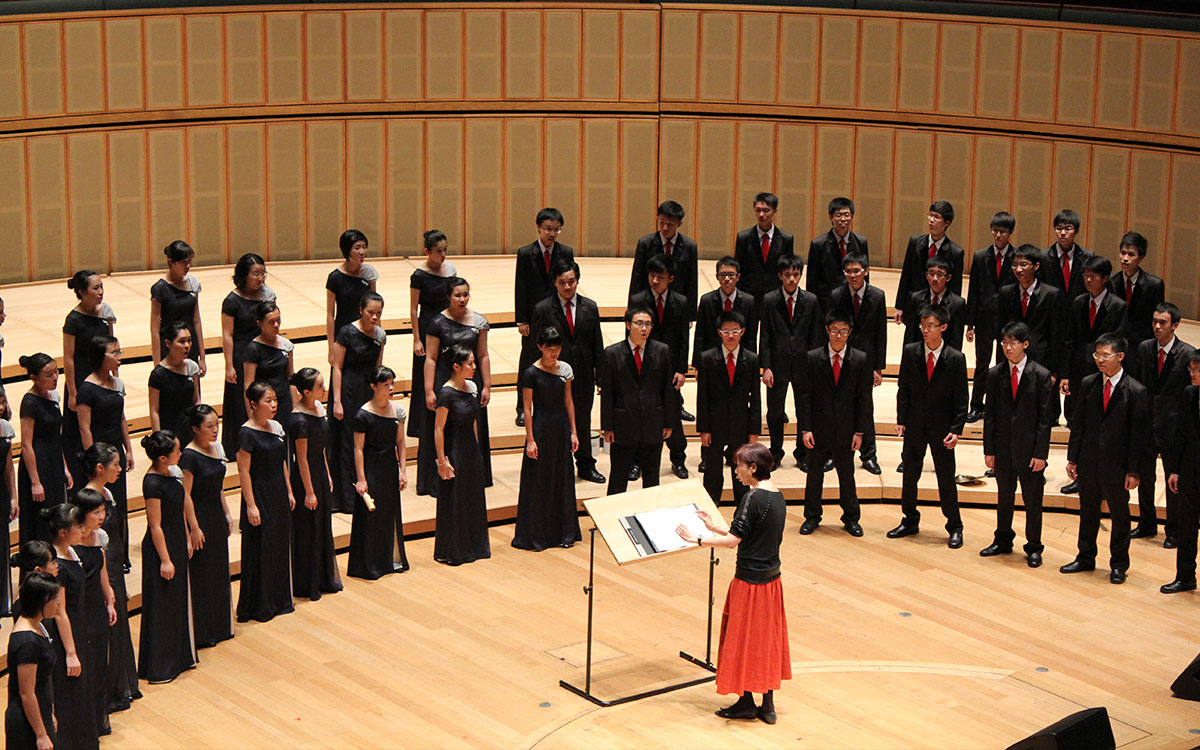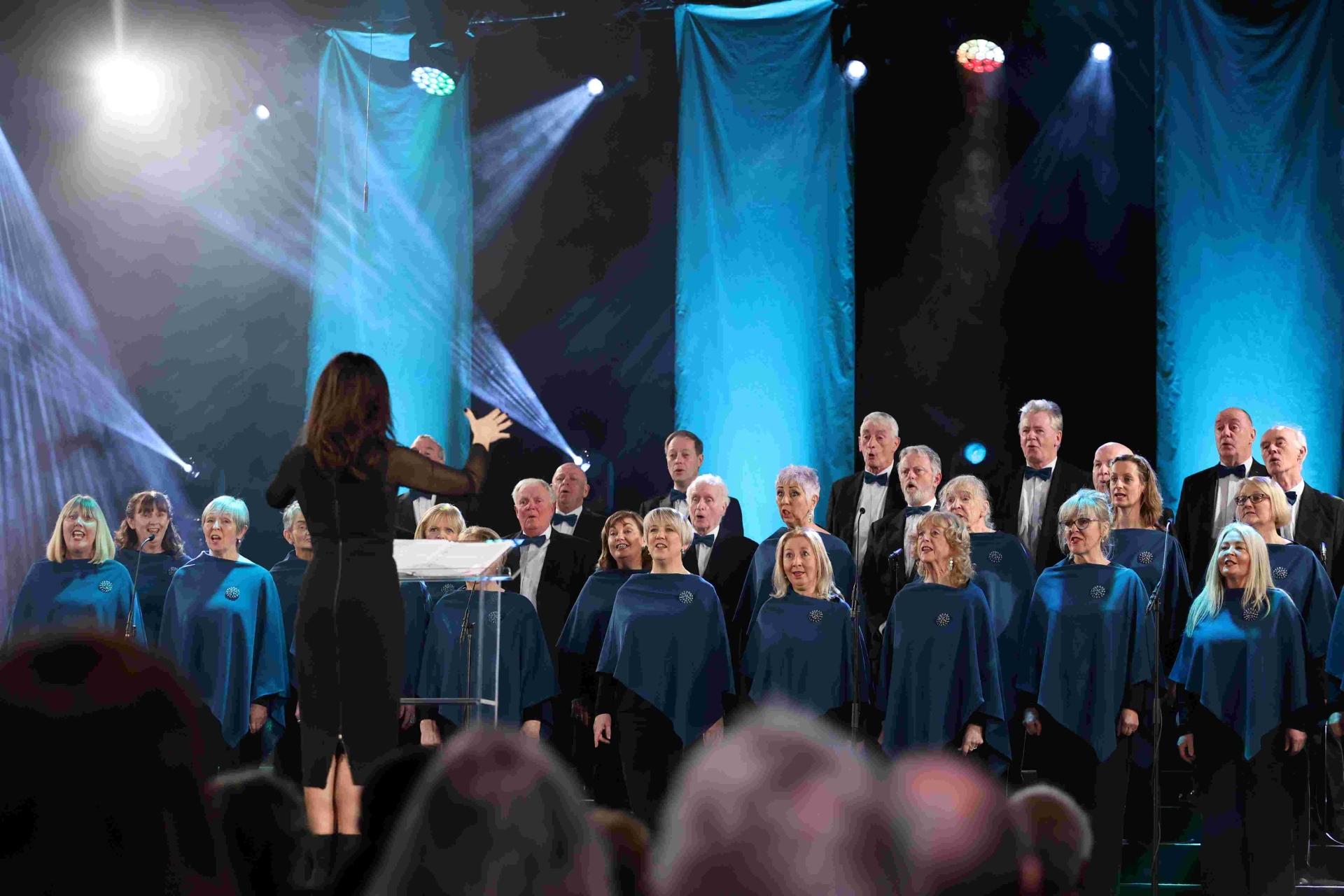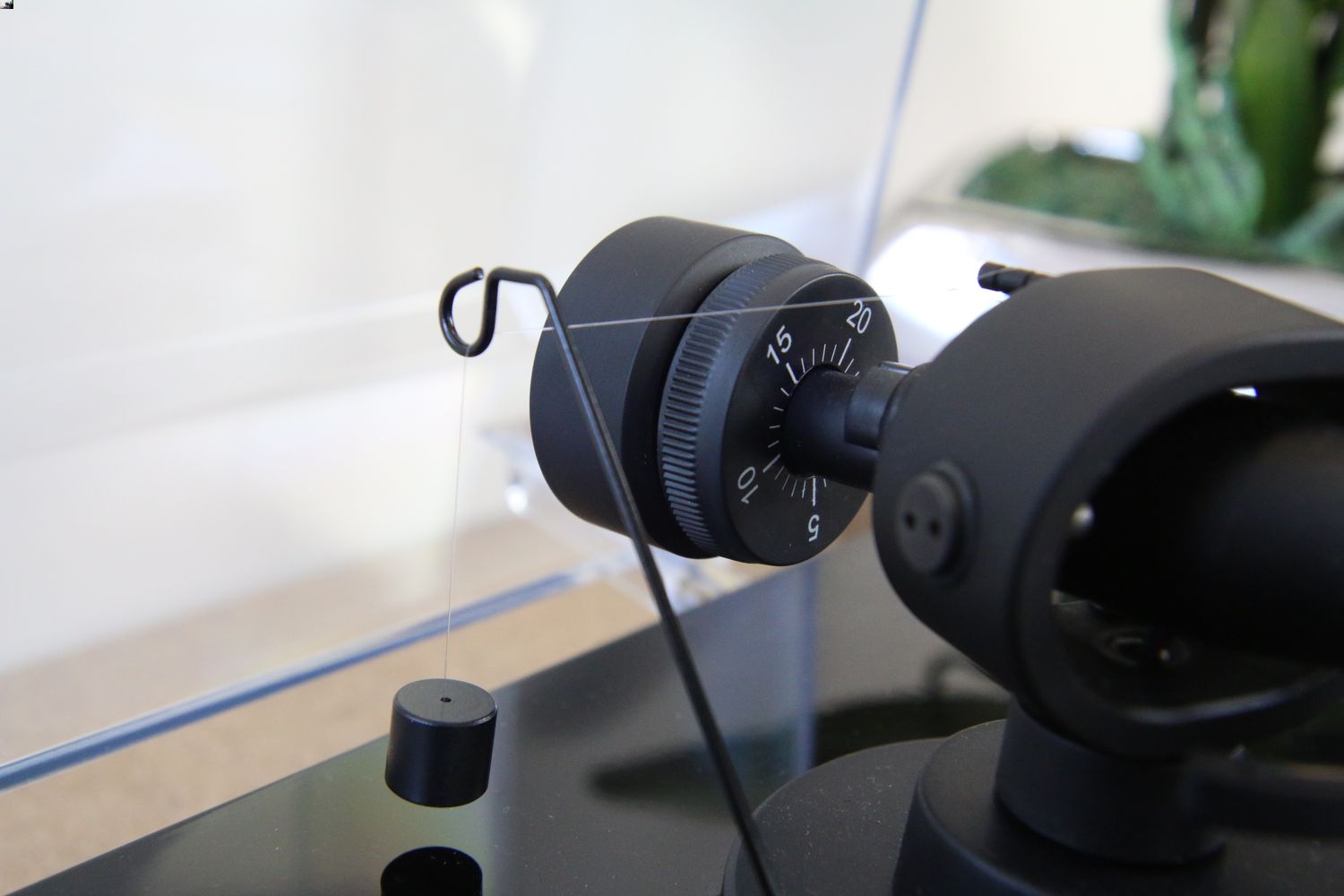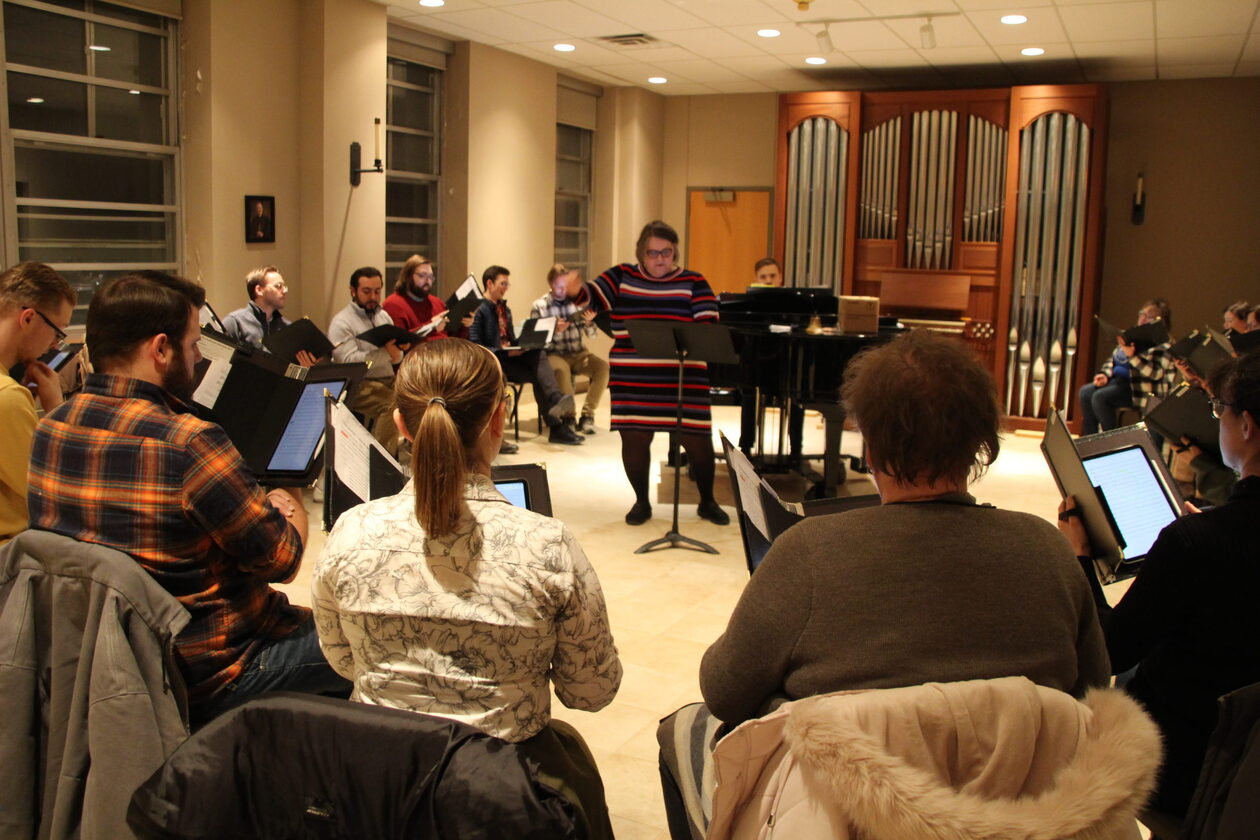Home>Production & Technology>Choir>What Should You Not Do In A Choir?


Choir
What Should You Not Do In A Choir?
Published: February 23, 2024
Discover the top mistakes to avoid in choir singing. Learn what not to do in a choir to improve your vocal performance and harmony. Join us and elevate your choir experience!
(Many of the links in this article redirect to a specific reviewed product. Your purchase of these products through affiliate links helps to generate commission for AudioLover.com, at no extra cost. Learn more)
Table of Contents
- Arriving late to rehearsals or performances
- Talking or whispering while the director is speaking or conducting
- Singing out of tune or not blending with the rest of the choir
- Being disruptive or disrespectful to other choir members
- Not following the director's instructions or cues
- Using electronic devices during rehearsals or performances
Arriving late to rehearsals or performances
Punctuality is a fundamental aspect of choir participation, reflecting respect for the ensemble and its members. When a choir member arrives late to rehearsals or performances, it can disrupt the flow of practice and cause unnecessary stress for the director and fellow singers.
Arriving late to rehearsals can hinder the choir's progress, as it interrupts the momentum and cohesion necessary for effective practice sessions. The warm-up exercises and vocal preparations at the beginning of rehearsals are crucial for synchronizing the choir's sound and establishing a unified tone. When a member arrives late, they miss out on these essential warm-ups, which can impact their ability to blend with the rest of the group. Additionally, their late entry can be disruptive and distracting to the other singers who are already engaged in the rehearsal process.
In the context of performances, punctuality is even more critical. Choirs often have specific call times for performances to allow for vocal warm-ups, last-minute instructions, and the coordination of group movements on stage. When a member arrives late to a performance, it not only disrupts the group's preparation but also creates unnecessary tension and anxiety among the other singers. Furthermore, late arrivals can reflect poorly on the choir as a whole, conveying a lack of professionalism to the audience and event organizers.
Beyond the practical implications, arriving late to rehearsals or performances can also signal a lack of commitment and dedication to the choir. It sends a message that the individual's personal schedule takes precedence over the collective effort of the ensemble. This can erode trust and cohesion within the group, as other members may feel that their time and efforts are not being valued equally.
Ultimately, punctuality is a sign of respect and consideration for the choir, its director, and fellow singers. By arriving on time, choir members demonstrate their commitment to the collective success of the ensemble and contribute to a positive and harmonious rehearsal and performance environment.
Talking or whispering while the director is speaking or conducting
When choir members engage in conversations or whispering while the director is speaking or conducting, it disrupts the focus and cohesion essential for productive rehearsals and performances. The director's instructions and guidance are pivotal in shaping the choir's sound, dynamics, and overall musical interpretation. Therefore, any form of talking or whispering during these crucial moments can undermine the collective effort and hinder the choir's progress.
The act of talking or whispering while the director is addressing the ensemble reflects a lack of attentiveness and respect for the leadership within the choir. It conveys a disregard for the valuable insights and instructions being imparted, creating an atmosphere of distraction and disengagement. Furthermore, such behavior can be disruptive to other choir members who are striving to concentrate and internalize the director's feedback and musical direction.
In addition to disrupting the rehearsal or performance, talking or whispering while the director is speaking or conducting can impede the choir's ability to effectively communicate and synchronize as a vocal ensemble. The director's cues and verbal instructions serve as the primary means of coordinating the choir's movements, dynamics, and musical expression. When these signals are overshadowed by chatter or whispering, the choir's ability to execute cohesive and unified performances is compromised.
Moreover, engaging in conversations or whispering during rehearsals or performances can create an environment of discord and unprofessionalism within the choir. It may lead to a lack of trust and mutual respect among members, as it demonstrates a disregard for the collective focus and dedication required to achieve musical excellence.
Ultimately, the act of talking or whispering while the director is speaking or conducting undermines the integrity of the choir's artistic process and diminishes the overall quality of its performances. It is essential for choir members to recognize the significance of attentive listening and respectful behavior during rehearsals and performances, honoring the director's leadership and fostering a harmonious and focused musical environment.
Singing out of tune or not blending with the rest of the choir
Singing out of tune or failing to blend with the rest of the choir can significantly impact the overall sound and cohesion of the ensemble. In a choir, the collective harmony and resonance of the vocal blend are fundamental to creating a unified and captivating musical performance. When a choir member sings out of tune or fails to blend with the group, it disrupts the harmonious balance and diminishes the overall impact of the choir's sound.
The ability to sing in tune and blend with fellow choir members is not only essential for musical excellence but also reflects a deep understanding of vocal discipline and ensemble dynamics. Each voice within the choir contributes to the overall tapestry of sound, and when one voice is out of tune or fails to blend seamlessly, it can create dissonance and detract from the intended musical expression.
Furthermore, singing out of tune or not blending with the rest of the choir can compromise the choir's ability to convey the emotional and artistic nuances of a piece. Intonation and vocal blend are pivotal in delivering the intended mood and resonance of the music. When individual voices do not align harmoniously, the intended emotional impact of the music can be lost, diminishing the depth and authenticity of the performance.
From a technical standpoint, singing out of tune or failing to blend can also disrupt the choir's overall sound balance. A choir's collective sound is built upon the complementary interplay of voices, each contributing to a unified and resonant tonal quality. When a voice stands out as discordant or disconnected from the ensemble, it disrupts this balance and compromises the choir's ability to deliver a polished and cohesive performance.
Moreover, failing to blend with the choir can impact the confidence and morale of individual singers. It can lead to self-consciousness and frustration, affecting the overall morale and enthusiasm within the ensemble. Additionally, it can create a sense of unease among other choir members, as they strive to maintain their own vocal blend while adjusting to the dissonance created by the out-of-tune or non-blending voice.
In essence, singing out of tune or failing to blend with the rest of the choir not only affects the musical quality of the performance but also influences the collective morale and artistic integrity of the ensemble. It is imperative for choir members to prioritize vocal discipline, attentive listening, and adaptability to ensure a harmonious and resonant choral sound that elevates the overall musical experience for performers and audiences alike.
Being disruptive or disrespectful to other choir members
Being disruptive or disrespectful to other choir members not only undermines the collaborative spirit of the ensemble but also erodes the foundation of mutual respect and camaraderie essential for a harmonious choral experience.
In a choir setting, fostering a supportive and respectful environment is paramount to the collective pursuit of musical excellence. When a member engages in disruptive or disrespectful behavior, it not only disrupts the rehearsal or performance but also inflicts emotional and psychological strain on the affected individuals and the overall group dynamic.
Disruptive behavior, such as making distracting noises, engaging in side conversations, or displaying a lack of focus, can derail the choir's progress and impede the director's efforts to guide the ensemble effectively. It creates an atmosphere of discord that hampers the collective concentration and diminishes the artistic potential of the choir's performances. Additionally, disrespectful conduct, such as mocking or belittling fellow choir members, can inflict emotional harm and breed a toxic atmosphere of mistrust and discomfort within the ensemble.
Furthermore, being disruptive or disrespectful to other choir members can fracture the cohesion and trust that underpin successful choral collaborations. Choirs thrive on a sense of unity and shared purpose, where each member's contribution is valued and respected. When disruptive or disrespectful behavior disrupts this equilibrium, it undermines the collective morale and weakens the ensemble's ability to function as a cohesive musical unit.
Moreover, such behavior can have lasting repercussions on the affected individuals, causing emotional distress and diminishing their enthusiasm for choral participation. It can also create a ripple effect, leading to a breakdown in communication and collaboration among choir members, ultimately hindering the ensemble's ability to achieve its full artistic potential.
Addressing and mitigating disruptive or disrespectful behavior within a choir is essential to preserving the integrity and vibrancy of the ensemble. Cultivating an environment of mutual respect, empathy, and support is crucial for nurturing a positive and inclusive choral community where every member feels valued and empowered to contribute to the collective musical journey.
In essence, being disruptive or disrespectful to other choir members undermines the core principles of collaboration, respect, and unity that are integral to the choral experience. It is imperative for choir members to uphold a standard of conduct that fosters a culture of mutual respect and camaraderie, ensuring that the ensemble thrives as a nurturing and harmonious artistic collective.
Not following the director's instructions or cues
The role of a choir director is pivotal in shaping the collective musical expression and cohesion of the ensemble. When choir members fail to follow the director's instructions or cues, it disrupts the synchronized harmony and undermines the director's ability to guide the choir effectively. The director's instructions encompass a wide spectrum of musical and performance-related guidance, including vocal dynamics, articulation, phrasing, and stage movements. Each directive is meticulously designed to enhance the choir's overall performance and convey the intended emotional depth of the music.
By disregarding the director's instructions or cues, choir members compromise the ensemble's ability to deliver a cohesive and polished performance. This can manifest in various ways, such as incorrect vocal dynamics, mistimed entrances or exits, and deviations from the intended musical interpretation. Each of these instances detracts from the choir's collective impact and diminishes the depth of the musical expression.
Furthermore, not following the director's instructions or cues can create a sense of discord within the ensemble, as it disrupts the unified vision that the director seeks to cultivate. It can lead to inconsistencies in the choir's performance, hindering the attainment of a harmonious and synchronized vocal blend. Additionally, it can erode the director's confidence in the ensemble's ability to execute the intended artistic vision, leading to a breakdown in the collaborative trust between the director and the choir members.
From a broader perspective, not adhering to the director's instructions or cues reflects a lack of discipline and commitment to the collective artistic pursuit. It signifies a disregard for the director's expertise and leadership, undermining the fundamental principles of respect and collaboration within the choir. Moreover, it can create a ripple effect, impacting the overall morale and cohesiveness of the ensemble, as other members may feel the repercussions of the disrupted artistic synergy.
Ultimately, following the director's instructions and cues is essential for nurturing a culture of attentiveness, discipline, and unity within the choir. It is a testament to the choir members' dedication to honoring the collective artistic vision and contributing to a harmonious and impactful musical journey. By prioritizing the adherence to the director's guidance, choir members uphold the integrity of the ensemble's artistic expression and ensure the realization of a compelling and resonant choral performance.
Using electronic devices during rehearsals or performances
The use of electronic devices, such as smartphones, tablets, or personal music players, during choir rehearsals or performances can have significant implications for the overall focus, engagement, and cohesion of the ensemble. In the context of choral rehearsals, electronic devices can serve as sources of distraction, diverting choir members' attention away from the rehearsal process and impeding their ability to fully engage with the musical material and director's instructions.
When choir members utilize electronic devices during rehearsals, it not only disrupts their own focus but can also create a ripple effect, impacting the collective concentration and attentiveness within the ensemble. The allure of digital notifications, social media, or unrelated content can draw individuals away from the musical task at hand, leading to a lack of participation, diminished vocal presence, and a compromised sense of ensemble unity. Additionally, the visual distraction caused by electronic screens can detract from the director's efforts to convey musical nuances and instructions, hindering the choir's ability to synchronize and internalize the desired artistic interpretation.
Moreover, the use of electronic devices during performances can pose a risk to the overall professionalism and impact of the choir's presentation. In a live performance setting, the visual presence of electronic devices, including illuminated screens or audible notifications, can detract from the audience's immersion in the musical experience and convey a lack of dedication and respect for the performance opportunity. Furthermore, the potential for electronic devices to produce disruptive sounds or interfere with audio equipment can compromise the technical quality of the choir's presentation, undermining the ensemble's ability to deliver a seamless and captivating performance.
Beyond the immediate impact on rehearsals and performances, the habitual use of electronic devices within the choir environment can erode the sense of communal focus, respect, and shared artistic commitment. It may lead to a culture of detachment and individual preoccupation, hindering the development of a cohesive and harmonious choral community. Additionally, the use of electronic devices can impede the cultivation of attentive listening, a fundamental skill for choral singers to adapt and respond effectively to the director's guidance and the ensemble's collective sound.
In essence, the use of electronic devices during choir rehearsals or performances can undermine the ensemble's cohesion, focus, and professional presentation. By prioritizing the cultivation of a technology-free environment during musical engagements, choir members can nurture a culture of attentiveness, respect, and shared dedication to the collective artistic journey, ensuring the realization of impactful, cohesive, and artistically resonant choral performances.











